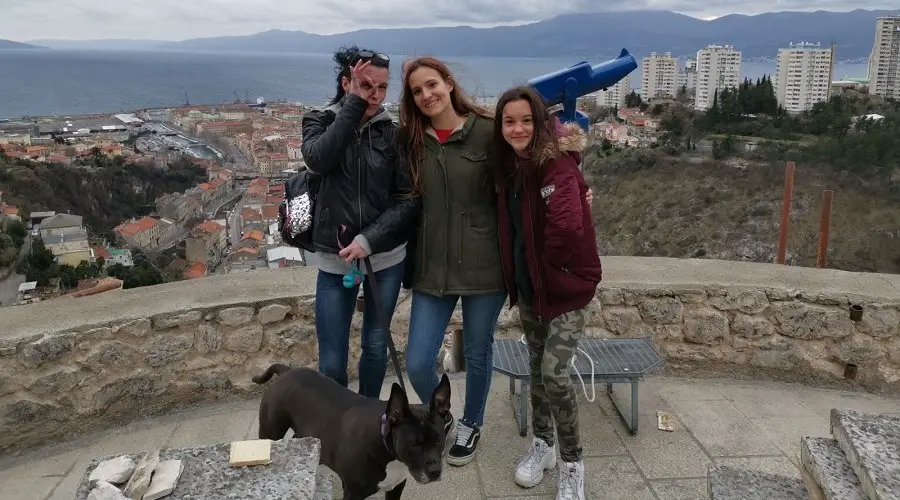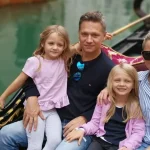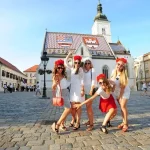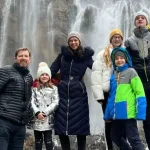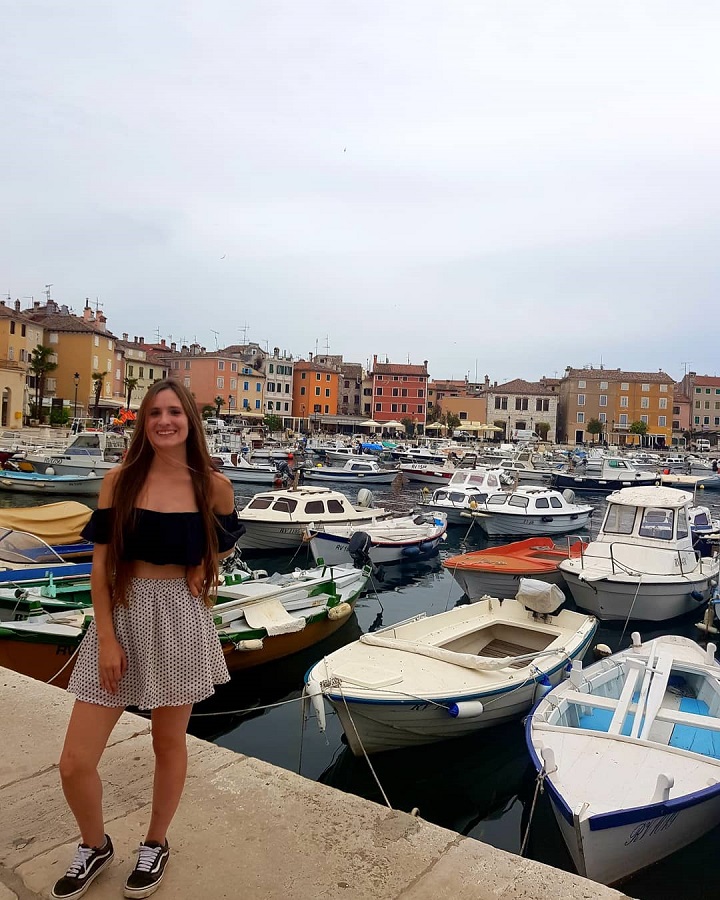
My name is Nadia Milevčić, I was born in Buenos Aires, Argentina, and I am 27 years old. My relationship with Croatia was always very strong because four of my great-grandparents were Croatian and went to Argentina in the 1920s. They did not meet in Croatia but in Argentina, where they made a family. My dad grew up among Croatians, and that tradition came down to my family. Since I was very little, I was aware of my Croatian roots, and that is why I always wanted to come here. In Argentina, I studied literature, and I worked as a high school teacher, but when I won the Croaticum scholarship, I left my job behind and decided to travel to Rijeka. I loved my career and my life in Argentina, but I also felt that something was missing. I wanted to travel and see the world, connect with another culture and live in a place totally different than mine. At first, I was only going to stay for four months to study Croatian, but the outbreak of covid made me change my plans because I couldn’t go back to Argentina. I finally spent almost two years in Croatia without going back to my country. At the beginning of this year, I spent three months in Argentina, but I realized that Croatia changed me and that I cannot stay only in one country. I love Argentina, and I will always be from Latin America, but these two years in Croatia marked my heart, and a big piece belongs to it. This country allowed me to feel free, cross limits that I had never imagined, and connect with people from all over the world. I grew up in every way and learned so much that I can’t go back. Half of my life is in Argentina, but the other half is in Croatia, and for that reason, I travel every year from one continent to another. I still don’t know where I’m going to build my life, but I know very well that I don’t want to give up on either of them.
1. You made the switch to Croatia. Tell us a little about the decision process and how long it took for you to get on the plane.
In Buenos Aires, I decided to take classes in Croatian language and culture with my dad and my brother. This was my first meeting with a Croatian person who not only taught us about the language and culture but also told us about the history of his country with a lot of love. It also brought me closer to other descendants of Croatians who also wanted to strengthen their roots and get closer to the culture. In parallel with this process, I began to look for information to obtain citizenship, and for this reason, I went to the embassy. There they told me about the Croaticum, a program for friends and descendants of the Croatian people. At that moment, the possibility of traveling and living for a while in Croatia began to take shape in my head. I was finishing my degree in Buenos Aires, and I thought it was a good time to try it. I applied in May 2018, and they did not give me the scholarship. At the end of the year, my Croatian cousins (whom I did not know) contacted me through Facebook. We quickly established a good connection, and this was a sign to me that I needed to try again. In 2019 I sent my application to study in Rijeka again, and this time they gave it to me. I remember that when I won the scholarship, my heart was overflowing with happiness, but I also had a hard time believing that I was actually going to travel to Croatia. Living in Latin America makes everything complicated from a geographical and economic point of view, and I would be lying if I said that it was easy to get here. If I succeeded, it was also because I received a lot of support and help from my friends and family, who knew that my biggest wish was to come to Croatia.
2. What did your family and community back home think of your decision at the time?
At that time, I had finished my studies in Argentina, and everyone knew that nothing could tie me to the country. From the Croatian lessons, the first unsuccessful scholarship application, and all my visits to the embassy, it was a project that had been in my head for two years. Everyone was happy for me because they knew of the effort and time invested in this idea. Especially, I think it was very important for my dad because I was the first person in our family to visit Croatia and meet our cousins. It was a bridge that we had yet to establish, but the fact that I was going to travel marked a beginning.
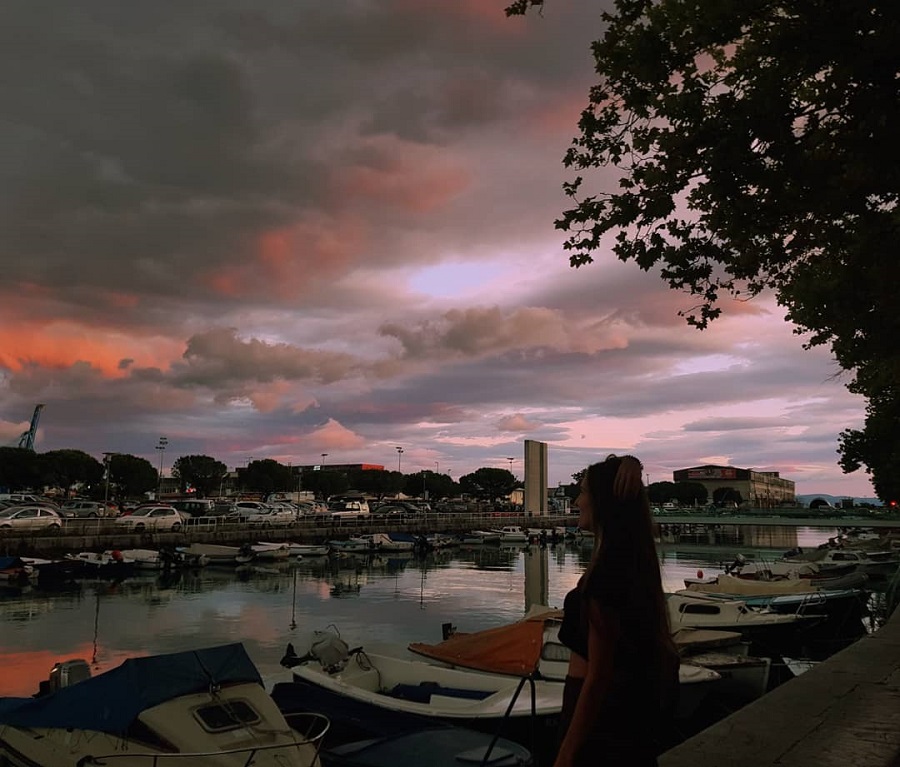
3. Where did you get your information about the realities of Croatia prior to coming?
My Croatian cousins and teacher gave me a good overview of the situation in the country. My grandmother had also traveled to Croatia in the year 2000, and she told us a lot about the country and our family, but I think that no one can prepare you and tell you effectively what you are going to find on the way. Nobody could have told me that a pandemic was coming and that it was going to complicate the process of obtaining citizenship. Or that it would also be difficult to get a job or have to take a semester online because the faculty was closed. No one could have told me that I was going to separate from my new friends so quickly due to quarantine. My first month in Croatia was very hard, and this was completely unexpected. I had to say goodbye to many people and places when I was just starting to get into a routine. I knew that my life in a new place was going to be a challenge, but I never imagined that it would be so hard.
4. What were you most nervous about making the switch? What was your biggest fear, and what was the reality of what you found?
I was scared to find myself alone on a continent and in a country, I didn’t know. All this was like starting from zero for me, even though I knew I had a family in Rijeka who could help me and give me support. About the language, the culture, the people, and everything that could happen, I knew from the moment I applied for the scholarship that leaving Argentina meant facing the unknown. When I arrived, I was surprised by how warm my Croatian family was even though we had never seen each other. They picked me up at Zagreb airport and included me in their life as if we had known each other all our lives. This was very important to me, and to this day, I say that I was very lucky.
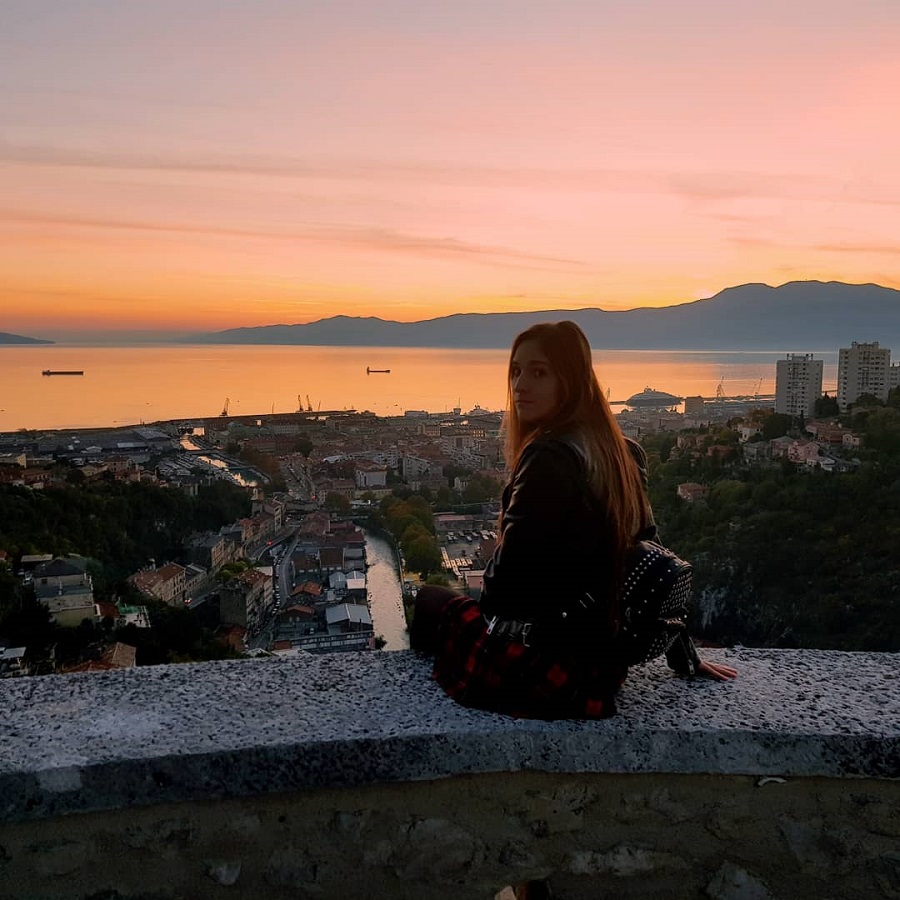
5. Think back to the time before you arrived. What were your perceptions about Croatia, and how were they different from the reality you encountered?
I thought maybe Croatians would not be so friendly to descendants because we weren’t born in Croatia. However, I noticed that they were happy every time I explained that my great-grandparents were Croatian and that I was studying the language. Even if my Croatian was not good, they were always willing to help me and teach me. I also noticed that they themselves considered me a Croatian many times when I told them about my family history and the reason for my trip. I also believed that it would be difficult to obtain citizenship and that the police were not going to help me with this process. However, I noticed that they had a lot of consideration when processing the residence and citizenship. The importance given to blood is incredible, and that is why I saw that the workers also had patience and consideration with me. Processing citizenship was difficult in 2020 due to covid. It was difficult to obtain the papers from Argentina and present them in Croatia because the Foreign Ministry did not work in my country. Many papers expired, and my citizenship appointment was delayed. However, they understood, and I finally got citizenship. I honestly had high hopes for the scholarship, but I never believed that they would give me the same status as a Croatian student. On campus, I lived with Croatians, and they also gave me the opportunity to eat in the dining room for very little money. I used the same facilities and paid the same money as my colleagues. The campus is new, and it was a very beautiful experience to live in it for a year. In other words, this program not only allowed me to learn the language but also gave me the opportunity to pay little money for food and accommodation. I think this shows how important the concept of blood is and that the grandchildren of Croats return to the country. I believe that at a social level, descendants are given a very valuable place, and they do not treat us as foreigners.
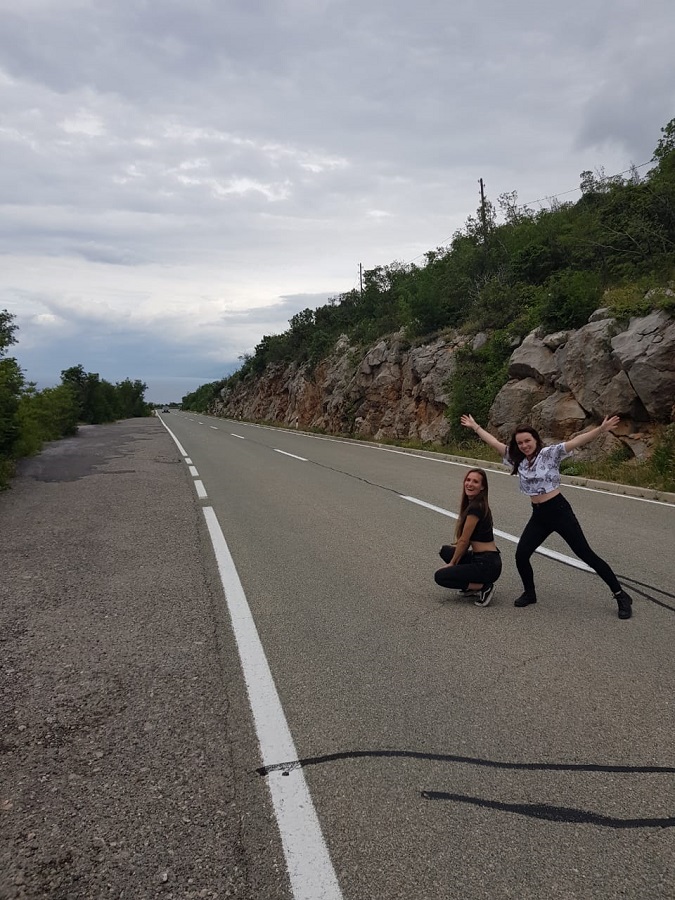
6. You are still here, so obviously, the pros outweigh the cons. Tell us about some of the things that you love about being in Croatia, as well as some of the things you don’t like.
Croatia is not only a very beautiful country, but it is also very safe, and there are more job opportunities than in Argentina. It also has good connections with other countries, and many cities are always full of tourists. In Rijeka, there are many international students, and there is a cultural exchange that is very useful and interesting. I love the fact that Croatia brought me closer not only to the locals but also to people from all over Europe, and this opened my mind a lot. It also has a lot of things to do and places to explore; you can always go to a new island, climb a different mountain or visit a beach you have never seen. The country is also very calm; you don’t have to deal with an excessive amount of people and traffic like in a big city. In Buenos Aires, I needed maybe three hours to make a trip that should last one. In this country there is no traffic, you can walk quietly down the street or drive without too many problems. I think there are a few things that I don’t like. Mainly I think everyone smokes too much, and I can’t get used to them doing it indoors. Maybe the rest of the things I don’t like are explained by cultural differences, like music or food. I know that this would happen in any country, and they don’t seem like a big reason to leave Croatia.
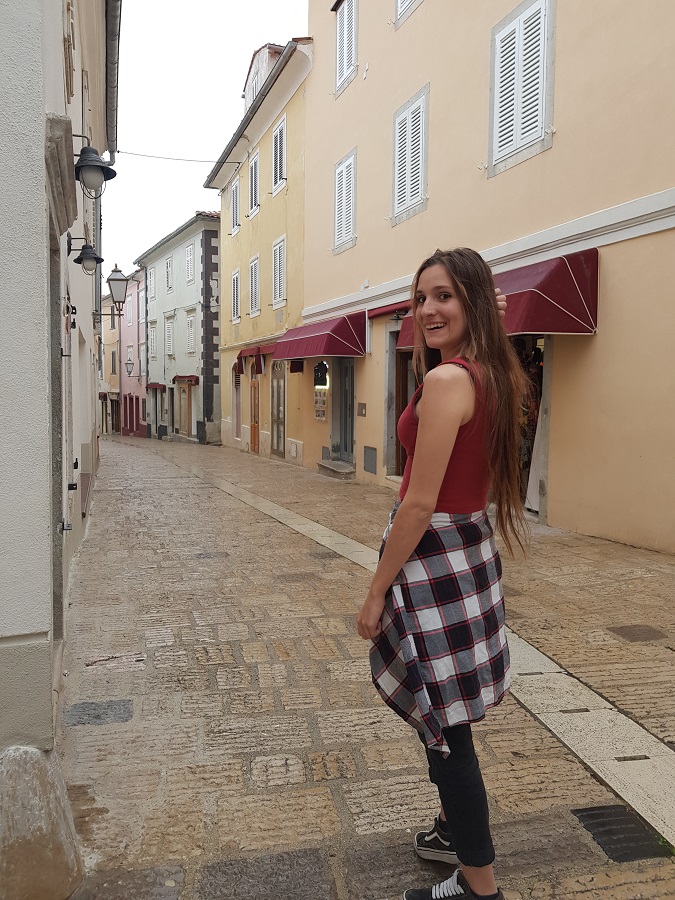
7. What advice do you have for others thinking about making a move from the diaspora?
I would tell them that if they have the desire, they should do it without thinking too much about it. It is normal to be afraid of the unknown and the unexpected, but in the end, they will always be grateful for having put it aside and come. There will be difficulties, but everything can be resolved along the way. I was scared, too, and yes, there were painful situations, but in the end, it was all worth it, and I would do it again from the beginning. Even if I had to relearn the language and start from cero without any friends, I would repeat it. It is not only for knowing the country of our grandparents and living in a beautiful place, but it also implies personal growth that no one can take away from you. I would also advise them to apply for the scholarship and explore Croatia. Whether if they want to live here or just travel, I think it’s a first approach to the country and an experience worth having. In this way, they can learn the language and also see what life is like here. I would also tell them not to worry about the language or about coming without citizenship, as the people are kind and patient and will help them as much as they can. If you have Croatian relatives, look for them! For them, it is very important to know what happened to the grandchildren of their relatives, and they are going to receive them with tears in their eyes.
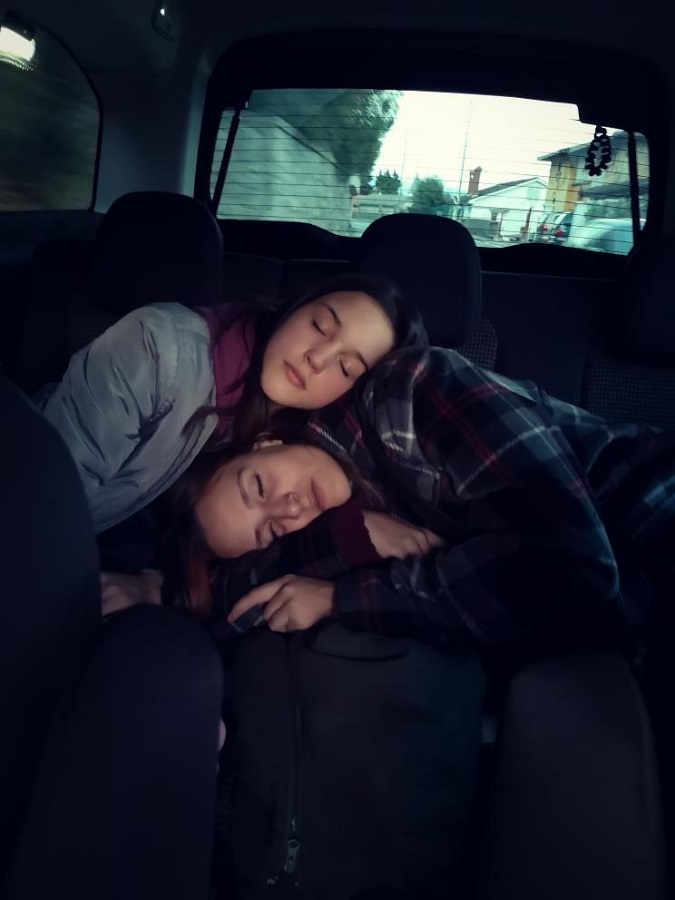
8. How do you think Croatia can better assist those who are looking to return to the Homeland?
I think Croatia is doing very well through the Scholarship program and the state office for Croats. However, I think that perhaps it could improve job placement since it is often difficult to find a job because you do not know where to look. The information inside and outside of Croatia could also be extended a little more since it is often necessary to ask about issues such as citizenship, residence, scholarship, etc., and the information is not so clear and accessible. There is not much promotion of the scholarship in Latin America, and many people do not know that this exists. They also do not know what papers are needed for citizenship and how it is processed within Croatia. To obtain this information, I had to ask many times and go to different offices, in addition to talking to my classmates.
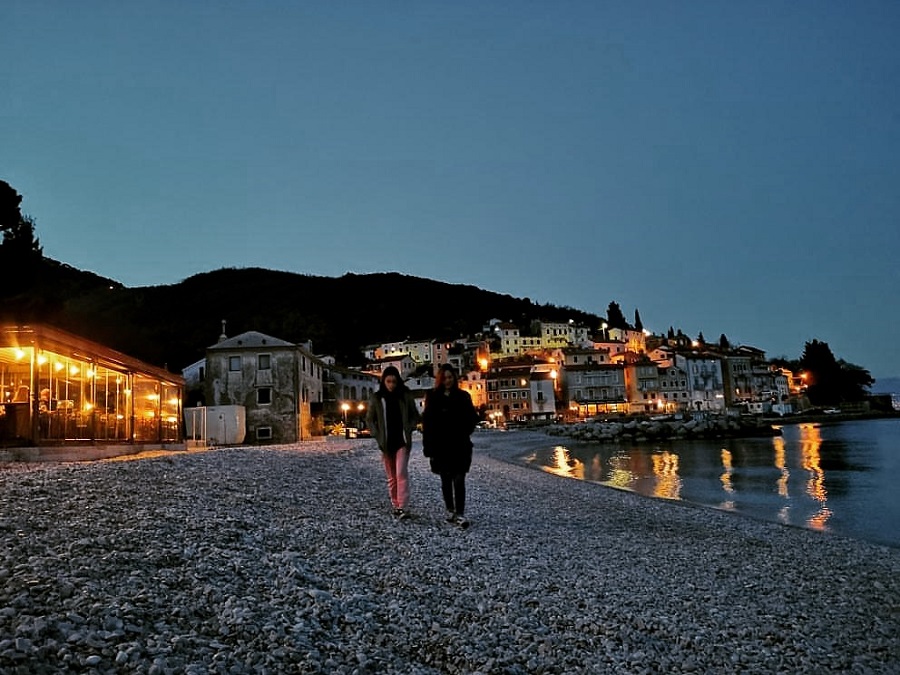
****
Thanks Nadia!
You can follow more stories in the Croatian Returnee Reflections series in our dedicated TCN section.
Would you like your returnee story – positive or negative – to be featured in this series? Contact [email protected] Subject Returnee.
****
What is it like to live in Croatia? An expat for 20 years, you can follow my series, 20 Ways Croatia Changed Me in 20 Years, starting at the beginning – Business and Dalmatia.
Follow Paul Bradbury on LinkedIn.
Croatia, a Survival Kit for Foreigners will be out by Christmas. If you would like to reserve a copy, email [email protected] Subject 20 Years Book

